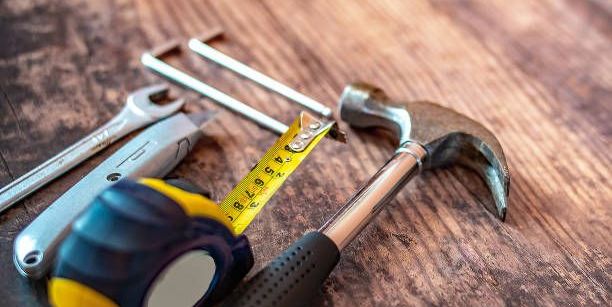Homeowners will always need to maintain their properties. There are the essentials to take care of, and there can also be times when you just feel like a change. If your kitchen is outdated, for example, you probably want to refresh it with something more on-trend or timeless. If you live in a home long enough, renovations are pretty much inevitable. But they also cost money, and you need to be prepared to pay for them. When it’s time to renovate, or you’d like to be able to in the near future, you have to decide the best way to pay for it and how it will fit into your general financial plans.
Slow and Steady: Spend Time Saving

If you’re not in any rush to renovate, being diligent about saving can help you prepare. You might know you want to install a new bathroom in a few years, but you don’t need to do it right now. You’ve got time to save, so now you just have to make sure you actually are saving.
There are plenty of strategies you can use to save up and even save as much as you possibly can. Firstly, try to commit a portion of your income to saving for future renovations. This will ensure you’re saving something, whether it’s a small or large amount. If you want to save more, you can use a range of tactics to cut down on your current expenses and put away more for later. Try going over your budget and spending to find anywhere you can cut costs. Maybe you can spend less on going out, groceries, or even your daily commute. Spending less on clothes now could mean you’re able to afford your dream kitchen in a few years.
Cash Injection: Sell Some Items
To speed up your saving and get the money you need to renovate, you could also consider selling some things. Having assets that aren’t as useful to you as the renovations would be is pretty pointless.
You could consider selling a variety of things. If you have an old car, arranging for junk car removal may get you some cash in return. Maybe you set up a home gym but it’s time to admit you’re not getting much use out of the equipment. Selling it gets you some cash you can put to better use. Or perhaps you bought something for a new hobby that is gathering dust. You could have some old clothes or accessories that you can sell on too.
Another option is to consider assets you’ve invested in that you could sell. If you’re an investor, it’s always good to look at your portfolio now and then. Selling some assets could be a great choice if now is the right time to do it.
Plan to Pay It Off: Borrow the Money

Another option, if you just can’t wait to start on renovations, is to borrow the money you need. The great thing about this option is that there are so many different ways to do it.
You could borrow money from friends or family. This can be a risky choice, so it’s one you should think about carefully. Some people might be happy to lend you money, but it’s important to make sure you’re serious about paying it back. It can have a big effect on your relationship if you fail to repay what you borrow.
You could also consider using a credit card. Credit cards might work best for smaller renovation projects, as you might not get the best deal if you’re looking to pay for something larger. If you’re thinking about using a credit card, it’s important to know the interest rate and how much you’ll be repaying. Some cards offer good deals on interest-free periods, which could enable you to only repay what you borrow.
A loan is also a possibility. A personal loan could range from a small amount to a very large one. If you have a good credit score and can show you’re able to afford it, a loan may not be difficult to secure. As with other forms of borrowing, it’s important to check the interest rate and ensure affordability.
Borrowing against your home is another option. Equity release can allow you to use the equity on your home to pay for renovations in a smart way. Or you can use your home as security when borrowing money, which might help you borrow more.
Helping Hand: Look for Grants
In some cases, you might be able to get a home improvement grant to help you upgrade your home. This could significantly reduce the cost of renovations by paying for some upgrades that will improve your living conditions or the efficiency of your home. Grants often help to pay for things such as eco-friendly home upgrades, removing unsafe features or materials, or generally making your home more habitable.
One of the options for a grant might be to focus on the heating and energy efficiency in your home. If your home isn’t adequately heated or has an older heating system, there could be a grant available to help you upgrade. Grants can also help with installing renewable energy technology. For example, you might be able to get a grant to help pay for solar panels or to pay for the installation of an EV charging point.
If you’re curious about grants, make sure you do your research. You might be able to get government grants or perhaps help from a charity or another nonprofit organization. It’s important to know whether you’re eligible and what the application process is like. Be careful about deadlines too, as many grant programs only run for a limited amount of time. Take note of when the grant is available and make sure you apply for it in time.
You can pay for home renovations in a number of ways. There are options for getting the money you need quickly, but you can also take your time if you’re willing to wait.
